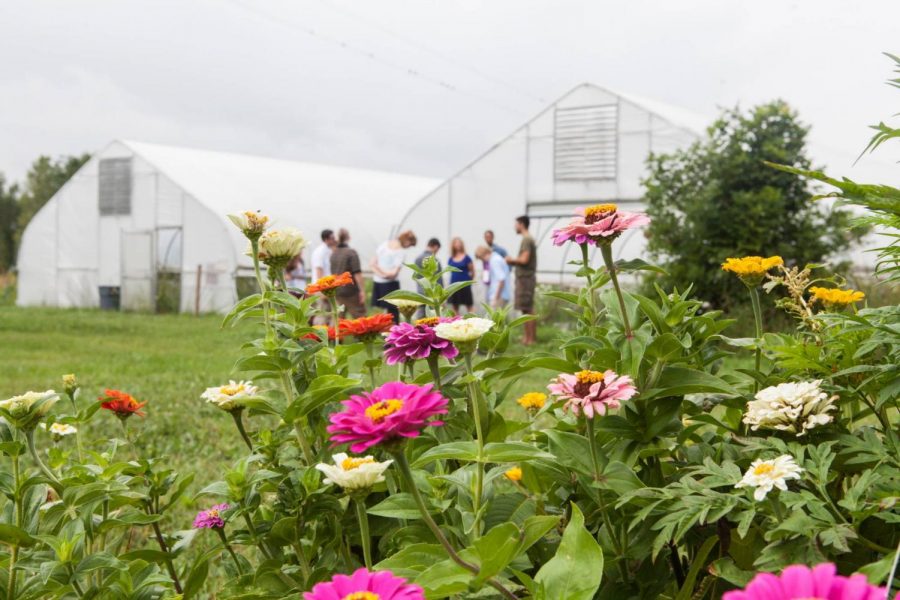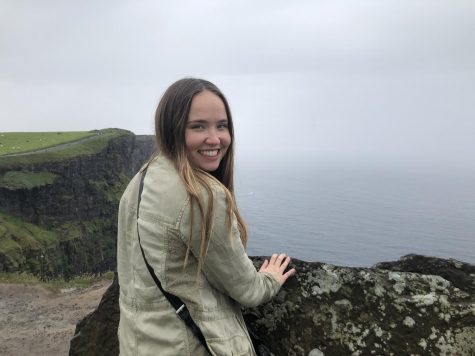GV’s campus footprint increases, carbon footprint deceases
Oct 22, 2019
Sustainability is Grand Valley State University’s seventh core value. With an office focused on sustainability and a group of collaborative departments, GVSU is a leading example of sustainability for higher education institutions.
The Office of Sustainability Practices has worked closely with other GVSU departments, such as Campus Dining and Facilities Services, to reduce overall emissions and waste. In the past 15 years, the campus itself has grown by 63 percent, but the following utilities have reduced: electricity by 28.2 percent, natural gas by 34.3 percent, water by 43.8 percent and steam by 35.3 percent. While much of this success is thanks to the Sustainability Office, Director Yumiko Jakobcic said it also has a lot to do with collaboration across campus.
“It’s a lot to do with the energy conservation measures, and even some of the stuff that students are doing really plays into that,” Jakobcic said. “This month is the energy competition in Housing, and we can see, looking at our utility bills, that they drop in October when we do that. Really, it’s a collective effort with a lot of little things involving students and facilities.”
One of the ways students have gotten involved in sustainability efforts is through the Sustainable Reinvestment Fund, which is seed money to start sustainability projects.
“The idea is that if we invest a little money in them, it’ll save the university money in the long run,” Jakobcic said. “Students have had really cool ideas, like using things to make paperless processes and the bike shop. We are always happy to work with students who have ideas.”
One of the most present outcomes from the fund is the water bottle refill stations across campus, which tell users exactly how many water bottles have been saved from refilling rather than buying a new bottle of water.
While GVSU has had immense local success, it has also been recognized nationally for its sustainability efforts. GVSU was the first Michigan university to earn a gold rating in the Sustainability Tracking, Assessment and Rating System (STARS), which universities use to see where they are in sustainability efforts.
“(STARS is) very thorough, and it looks at everything – like the exact kilowatts of electricity you use, to the number of students who ride the bus and to different policies,” Jakobcic said. “It’s very comprehensive, which is good.”
GVSU completes STARS every other year, and Jakobcic said it’s a huge collaboration across campus, with about 40 or 50 people contributing to the report. One of the departments on campus that works closely with the Sustainability Office is Campus Dining, which works to supply locally-sourced products and ultimately reduce GVSU’s carbon footprint.
“Local products are defined as products that are purchased within a 250-mile radius from campus that provide a prominent farm or business impact,” said Food Service Director Colin Yonkers. “We work with all of our commissary vendors to ensure that safe food handling and harvesting standards are in place. Then, we inspect every delivery that enters our operations for quality and temperature standards.”
Yonkers also said that much of the packaging and utensils used by Campus Dining is compostable, including straws, cups, lids, napkins and white disposable utensils. This focus on compostable products is something that helped GVSU divert 63 percent of its waste last year, Jakobcic said.
“Let’s just say an average university would put everything in a landfill, hopefully they’re not, but we are able to take (over) half of that and keep it out of the landfill, either by composting or recycling,” Jakobcic said.
With recent budget cuts, the Office of Sustainability Practices is working to fine-tune its work and spread awareness about sustainability on campus.
“Facilities puts all the pieces in place and they do a lot of the heavy lifting, but our role is to help the students to know that all this is happening and to do some sustainability lifestyle practices that will help support what they’ve done,” Jakobcic said.
























